“Together,


“Ireland’s



“Together,


“Ireland’s


Two women share their experiences of the exciting career paths that can blossom from doing a graduate programme, including on-the-job learning and exposure to other roles.
How has your career evolved?
Patricia: I’ve been with PepsiCo for 18 years since starting PepsiCo’s graduate programme after college. After trying out numerous IT roles, I am currently the Cybersecurity Lead for our sector.


Devan: I started seven years ago as an HR Operations intern. Since then, I have moved around various roles within the HR function, the majority within the talent acquisition team. What do you enjoy most about your job?
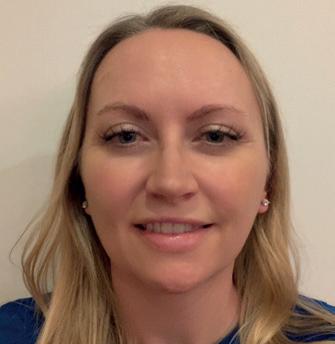
Patricia: There’s so much opportunity from an IT perspective. I’ve seen so much change across our business over the past 18 years — going from manual processes to pushing a digitalisation agenda. We advocate energy efficiency and are continuously adapting to new technologies.
Devan: The positive culture is evident from the minute you come in for the interview. Everybody here is so friendly and welcoming. The other is the space to develop, including opportunities to travel, which is part of the nature of being in a global organisation.
What does a graduate programme typically involve?
Devan: There are two-year rotational plans, with the exception of finance, which is three years so that graduates gain relevant accountancy qualifications. Graduates get to work with various teams and benefit from having a mentor. As well as IT and finance graduate positions, we’ve expanded into procurement, supply chain, R&D, Engineering, Quality and HR functions.
How can such programmes open new opportunities for graduates?
Patricia: The rotation factor is amazing. Graduates gain so much by working with a variety of teams because each team has something different to offer. The exposure to different roles could sway somebody to move into a career they might not have considered otherwise.
Devan: Graduates work together on cross-functional projects, so it builds skill sets that they wouldn’t get if they were just pigeonholed into one team. They can navigate their own careers through the programme. Many graduates have continued their careers to associate-level roles and beyond with us.
What advice would you give others thinking about embarking on a graduate programme?
Patricia: Be open to opportunities. Make the most of any training available because it might give you insight into some area that you hadn’t thought about before but could interest you.
Devan: Network internally. Build your brand with other functions and not just with other graduates because it can help give you a flavour for various roles.
Recent graduate recruitment research documents the opinions of students on a range of issues and offers a reflection of their concerns, ambitions and aspirations. It provides useful insights for students, graduates and anyone interested in the early career landscape.
Every year, along with our research partner Cibyl, gradireland conducts the largest student survey on the island of Ireland. The survey captures a broad spectrum of interests and aspirations from Ireland’s student population.
It provides valuable insights on issues such as student values, salary expectations, work-life balance and willingness to relocate or emigrate. Students are also asked about the jobs they would like to work in and what they value in an employer.
Student survey reveals aspirations

When asked about their plans after they graduate, the majority of respondents indicated their intentions to go into full-time employment directly after completing their degree. About 40% said they aim to find a full-time job, and 26% were looking to get into a graduate scheme. Another 12% intend to pursue further education, while 7% plan to take a gap year or go travelling.
In terms of the jobs that interest respondents, roles in engineering were the most common preference (9%) for students and graduates, followed closely by roles in healthcare, research, data analysis and design.
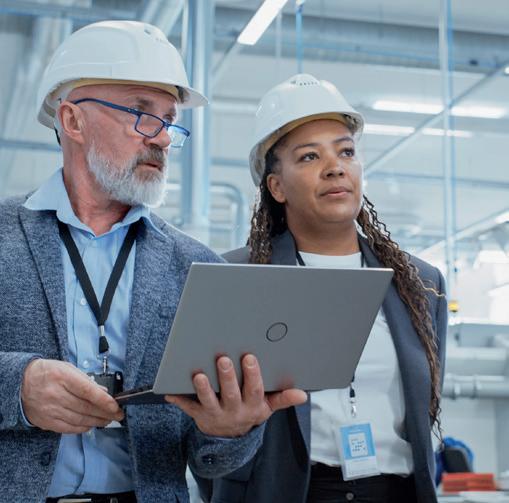

Work location and support needs
When asked where they would like to work, 48% said they would be willing
to start their career anywhere in Ireland; 34% said they would like to work close to home or their place of study; 18% said they planned to start their graduate career abroad.
Students and graduates were also asked about what support they expected from employers. Training, mentorship and relocation support were the most popular answers. The results of the survey also indicate that students highly value a good work-life balance, career progression and interesting work, while they give relatively little value to job prestige.
Entrepreneurial ambitions
Ireland’s students and graduates hold strong entrepreneurial ambitions, with almost a quarter (23%) saying that they were considering setting up their own business either during or straight after their studies.
What graduates are cautious about
Perhaps due to the instability of the past few years and the recent economic turbulence, graduates are cautious when it comes to assessing their prospects. Many (52%) think that it will be difficult to get a graduate job. This is down from 56% in last year’s survey but is still up from 40% the previous year.
Director General Siobhan Dean, Senior Executive, Biopharmachem Ireland“Future engineering graduates will play a key role in pushing the boundaries of innovation.”
between educational institutions, industry and government bodies is vital.”
Insights from survey: find out what today’s students want to do
Training, mentorship and relocation support were the most popular answers.
Claire Farrugia Assistant Editor, gradireland
A tax graduate programme, in an engaging and supportive work environment, is offering its candidates the opportunity to thrive and excel within the accounting and financial services sectors.
With ongoing support, networking, and flexible working practices, graduate programmes ensure candidates can thrive, achieve and evolve within an organisation. While the work may be challenging, and the continuing exams sometimes daunting, there are clear rewards for young people.
Supportive tax graduate programme
WRITTEN BY Mark NichollsRyan O’Brien, 25, joined the Deloitte Graduate Programme in the Cork office’s Global Employer Services (GES) line after studying International Business at the University of Limerick for four years. Recently promoted to Assistant Tax Manager after completing the graduate programme and achieving highly in the accounting and tax exams, he points to the support offered as a key component in his success. He joined the graduate scheme in 2020. Covid-19 restrictions meant it was April 2021 before he got into the office. However, a previous internship with the company meant he already knew some colleagues.
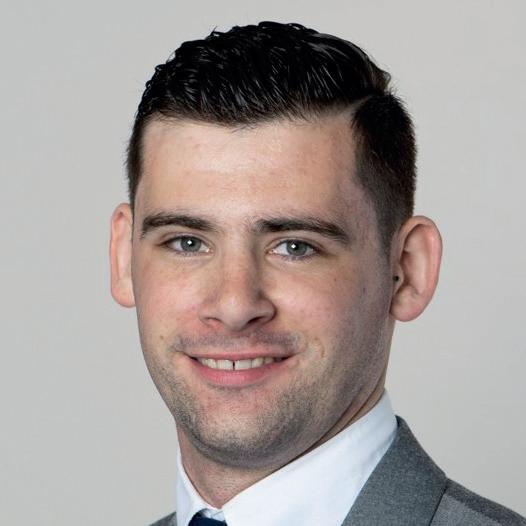
During the scheme, O’Brien worked through the rounds of the Chartered Accountants of Ireland exams, moving up the associate ladder as he passed each stage. He also took the Institute of Taxation exams, achieving first place in the ‘Tax Part 2’ exams this year. The graduate scheme offers much more in terms of work, with experience of different departments. “I was involved in engagement teams and client projects with hands-on experience from moment I joined the firm,” adds O’Brien.
Coaching from management
Graduates on the threeand-a-half-year programme are allocated a coach from management level and a buddy as a go-to point of contact to help with settling in. “Coming straight out of college into a professional services firm is a daunting experience, so, to have a buddy who has been in that position, and a coach, really helped,” says O’Brien. “It helps you fit into the Deloitte culture.”
With the regular exams and lectures, he points to the support structure in place for the graduate programme with flexible working practices, study leave and external facilitators offering additional sessions. For the final accounting exams, candidates have 12 weeks of paid study leave, which O’Brien says is invaluable but also an important investment for the company, as highlighted by the 95% pass rate among participants.
Inclusive and progressive programme Advice he would give to students applying to the Tax Graduate Programme is to speak with those already doing the course, visit the company website and do relevant research.
“Look at which area you might want to go into — be that tax, audit, risk advisor, financial services or consulting, and give time to the application process.” He also emphasises that it is not essential to have college qualifications in tax or accounting to apply.
For those securing a place on the programme, he urges them to get to know people, attend events for graduates and network. “One of the most important things once on the scheme is to gauge how you are progressing,” he says. “The company has an open-door policy where you can constantly request feedback, and there is a dedicated feedback platform, so ask people how you are getting on, what you could work on better and how you can improve.”
O’Brien believes talent is recognised within the company with opportunities for promotion to manager and senior manager-level and beyond. “Deloitte really do value people, and if you want to progress, the firm will recognise that,” he says.
“It is not a walk in the park; the graduate programme is challenging, but once you have those letters after your name, it is all worth it, and the support has been exceptional.”
Graduates on the three-and-a-half-year programme are allocated a coach from management level and a buddy as a go-to point of contact to help with settling in.
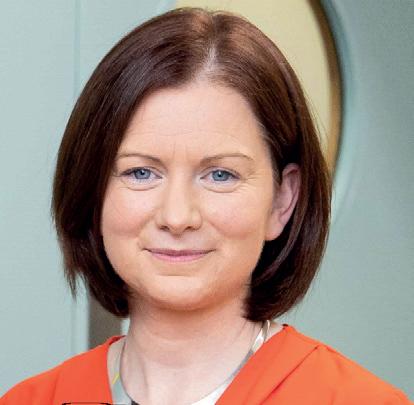
The world is experiencing disruption at such a fast pace. It is becoming much harder to predict, with certainty, what the workplace and jobs of the future will be.
Major innovations — such as artificial intelligence, cloud computing and smart communication technology — have had a major impact on how we live, work and engage with each other. This is exciting for new graduates but also shows how constant change is.
Being adaptable to change
We need to be able to adapt and become more comfortable with change. With careers now lasting close to 50 years, we will all probably make multiple career changes and transitions, requiring new skills, new expertise and developing new social networks at every turn.
to the organisation. Looking to the future, employers will be seeking graduates with high digital capacity with high degrees of competence in digital skills and literacy. In addition, knowledge and skills relating to climate change and sustainability will be key for graduates and businesses alike, as they become key actors in the implementation of the national Climate Action Plan and in supporting businesses to decarbonise their supply chains.
Employers will be seeking graduates with high digital capacity with high degrees of competence in digital skills and literacy.
The value of university graduates to business remains clear. University and college graduates are the workforce of the future and bring with them the new skills that many established organisations need to thrive in this new world of work. Provided they are equipped with the right attitudes, skills and knowledge, there are excellent career prospects for graduates.
Skills required to thrive
For business, and other important employers across social enterprise and the public sector, graduate talent is essential to bring new skills, new concepts and innovative approaches
As women in STEM continue to pave the way for a brighter future through innovative problem-solving, support of networks is crucial in promoting diversity and inclusion.
Connecting Women in Technology (CWiT) has been instrumental in promoting gender diversity and inclusion in the tech industry, inspiring and empowering women in STEM fields across Ireland.
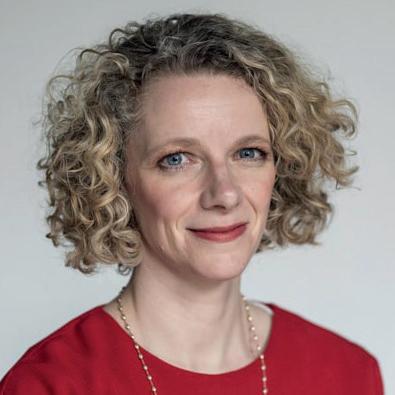
Promoting the faces of women role models Accenture’s Women on Walls campaigns have inspired and empowered young women to pursue careers in traditionally maledominated fields. Data from the Higher Education Authority (HEA) in Ireland shows that the percentage of female students in STEM courses in higher education institutions has increased to 30% within the 2020–2021 academic year.
In 2023, with the support of Paula Neary, Managing Director at Accenture,
Transversal skills — relating to critical and analytical thinking, creativity, teamwork, language and communications skills, innovation and entrepreneurship — will be central to supporting the graduates to connect seamlessly into the world of work and thrive in a time of rapid change.
Partnerships fostering innovation
If the Irish higher and further education system is to produce a steady supply of graduates, postgraduates and apprentices equipped to fill the high-skill roles of the future, businesses need to be closely engaged.
Partnerships between universities, colleges and businesses are already well-established in many fields, and they are essential for an economy founded on skills and innovation. Talented people, the availability of key skills and the ability to collaborate easily with universities and colleges are real positive features of Ireland’s competitive offering.
fields like aerospace engineering and cybersecurity. More women are pursuing STEM careers and making significant contributions to science and technology. A prime example is Norah Patten, an Irish aeronautical engineer pursuing her dream of working in astronautical science.
CWiT actively supports and promotes women in tech and engineering. In the realm of STEM, women are true architects of change, envisioning and constructing a brighter future through their innovative thinking and expertise.
Women are true architects of change, envisioning and constructing a brighter future through their innovative thinking and expertise.
I co-hosted the launch of Guidance and Industry Network (GAIN) in collaboration with DCU and the 30% Club. GAIN empowers guidance counsellors with insights into skills, opportunities, and pathways available to young women. By promoting women role models in STEM fields, GAIN bridges the gap between career guidance and industry, promoting diversity, inclusion and women’s leadership. Together, we can empower the next generation to achieve greater representation and diversity in the tech industry, including those returning to work.
More women pursue STEM roles
As a female aerospace engineer and certified security architect, I’ve seen a shift in gender dynamics in traditionally male-dominated
As a woman in the STEM industry, I’m thrilled to see the positive impact of initiatives like CWiT, which have led to increased visibility for women in science and technology. By showcasing female role models and promoting gender diversity, these programmes are encouraging more young women to pursue careers in traditionally maledominated fields.
I’ve personally witnessed this shift in Ireland, where the number of female STEM professionals in the engineering industry is on the rise. With continued support and opportunities for women in STEM, we can look forward to a brighter and more inclusive future for science and technology in Ireland.

Architects of the future: how women in STEM are building a brighter IrelandClaire McGee Head of Education and Innovation Policy, Ibec
Former participants of an award-winning graduate programme explain everything applicants need to know and how it can guide them to success.
Lidl’s graduate programme is one of the most coveted in Ireland. With only 10 places allocated per year, it receives thousands of applicants. With its competitive pay, award-winning training and skills developed by one of Europe’s fastest-growing retailers, what’s not to like?
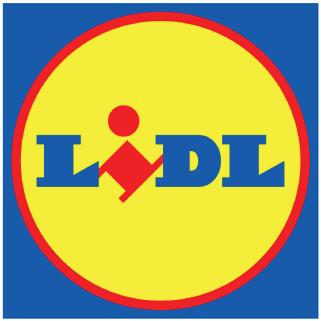

What the graduate programme involves “The programme itself is 18 months, and our graduates start with us each September,” explains James Carron, talent management specialist, who oversees the programme. Each graduate is taken into a specific department of the business, anything from sales and operations to marketing, human resources, procurement, logistics or construction.
“They then spend two weeks in their specific department, getting to know their team and getting an overview of the business area they will eventually work in before they all head off to do 12 weeks of intensive store training. It’s a very hands-on programme, which means graduates will be working on live operational projects from the very beginning,” he adds.
Advantages of working for a global retailer John Maher, sales operations manager, charts his story. “I always wanted to work in retail. My first job as a teen was working in a local convenience store. I like being customerfacing and working with people. I went to a lot of grad fairs when I was doing my master’s and, knowing that retail was the industry I wanted to work in, Lidl really interested me.”
He explains how one of the best parts of the job is access to mentoring directly from one of the company directors. “I met my mentor — a regional managing director — once a month and got incredible guidance. I was due to finish the programme in March 2020 but by the previous December, they had already offered me a job as an area manager, so I started my area management training.
“Initially, I had five stores in counties Carlow and Kilkenny and recently moved to Dublin West. The way I see it, it’s the next stage in my development. I want to progress. Working for a global retailer, the sky’s the limit as there are many international opportunities available to you. It’s a brilliant culture.”
Development opportunities across the business
Eva Kelly, acting head of human resources services, explains her experience. She learned about the development opportunities at Lidl after spotting them at a careers fair.
“They told me, ‘You get responsibility, are supported throughout’ — that I’d be challenged and would learn and develop. I just thought: that’s what I want. So I applied and was accepted. I spent six months in stores and warehouses. As a graduate, you get to learn the business from the ground up. It’s a unique way of approaching a programme, and it also allows you to build relationships all over the business.”
The company has nearly 7,000 staff on the island of Ireland, and Kelly’s team is the point of contact for all of them in relation to HR services. “What I really liked from the start was the culture. It’s fast-paced but values-driven, and that’s important to me. As a graduate, you have theoretical knowledge; but in the grad programme, you get training that builds all sorts of skills — from presentation to behavioural development.

“I’ve been exceptionally fortunate in the number of opportunities I’ve had here. I’ve held various roles, working with regional teams and in head office.” Kelly explains how she has grown throughout her career as the graduate programme evolved. With dynamic experiences, graduates get the chance to foster business skills without being limited in their careers.
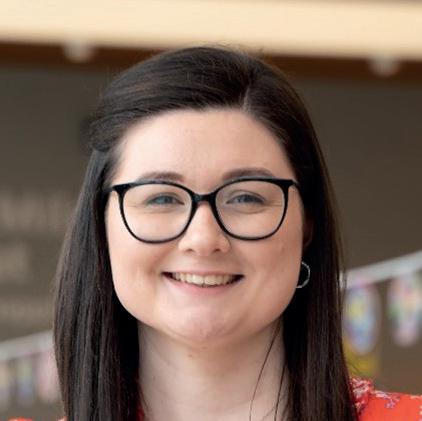
Working for a global retailer, the sky’s the limit as there are many international opportunities available to you.Director
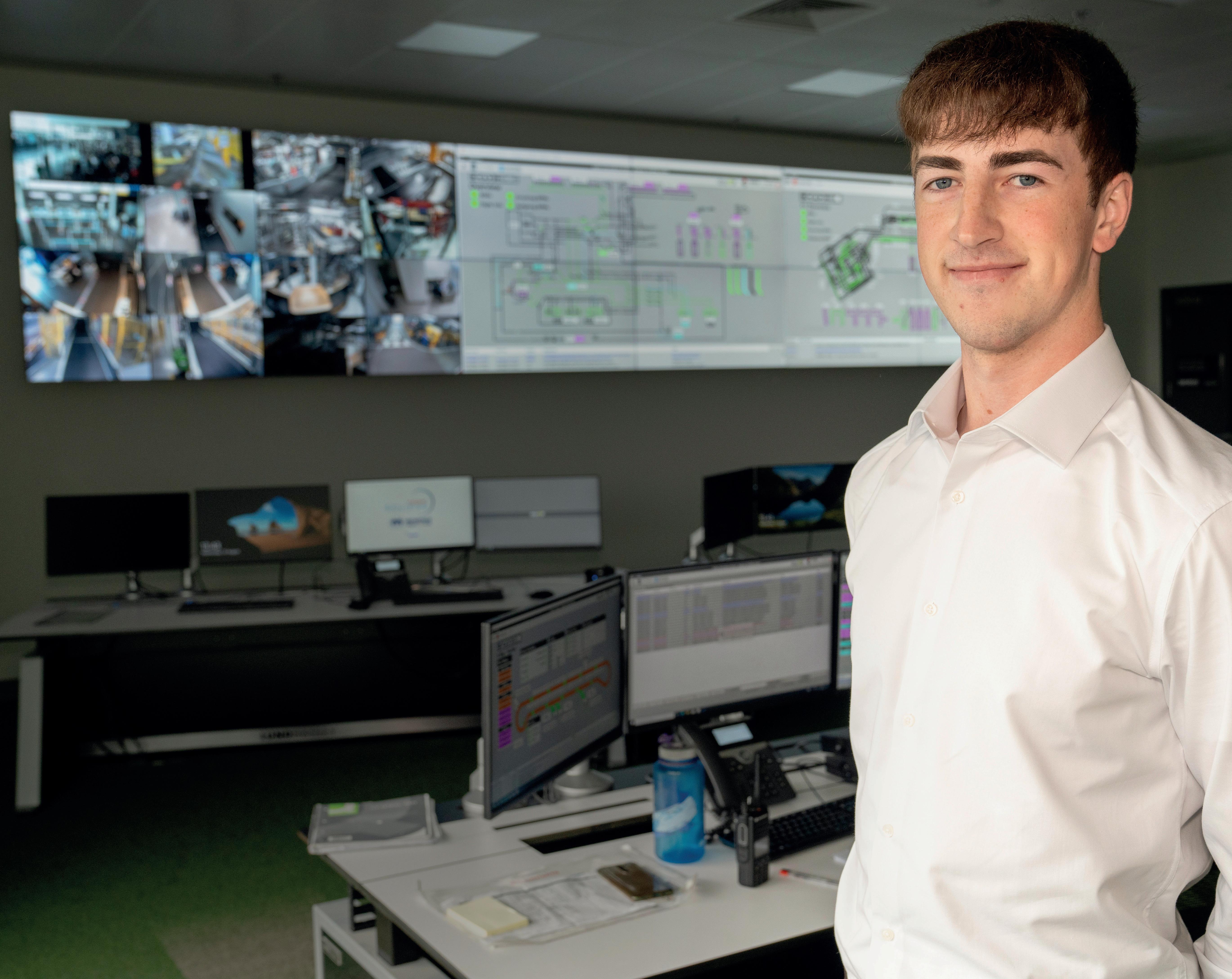
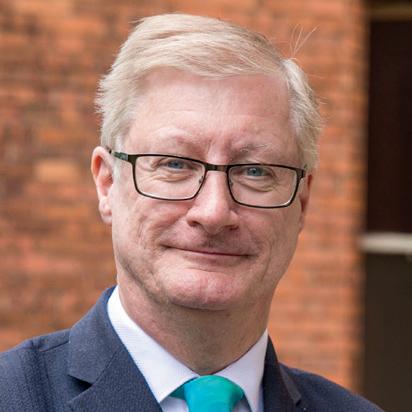
Confidence in the engineering sector continues to grow as 71% of employers expect financial position to improve this year. Engineers Ireland’s latest report, ‘Engineering 2023: A barometer of the profession in Ireland,’ has found that the outlook for recruitment in the engineering sector in 2023 is positive, with 67% of engineering employers surveyed planning to recruit.
Rising demand from growth in engineering
The report highlighted that 72% of employers are concerned that the shortage of engineers with the correct skills is a major barrier to business growth. The top skills that are being sought after include fundamental engineering knowledge, effective communication and the design of solutions to complex problems.
A rewarding, solutions-oriented career

Engineering touches the lives of everyone. It provides creative solutions to societal needs from tangible works, such as bridges and flood defences, heart stents and prostheses as well as the invisible technology around us. It is also vital to addressing the challenges of climate change and the circular economy.
Approximately 79% of Engineers Ireland members surveyed agreed that engineering is a rewarding career for young people. Another 76% believe the profession offers equal career opportunities for women and men. Moreover, 63% also agreed
that apprenticeships are an attractive route into engineering — with a higher percentage of females (70%) than males (62%) agreeing.
Future engineering graduates will play a key role in pushing the boundaries of innovation to protect and enhance our environment and society by delivering ambitious infrastructural and technological initiatives. To deliver a sustainable and digital future, educators, engineering organisations and third-level institutions must inspire and empower this next generation of innovators to pursue a career in engineering.
Supporting Ireland’s current and future engineers
From primary and secondary level to third level, Engineers Ireland supports and nurtures Ireland’s future engineering talent with its STEPS programme — the only national full-time STEM outreach programme focusing on engineering.
It offers free student membership and networking opportunities and the ability to connect and learn from their peers at a local and national level. Students have access to webinars, personal development training and other resources, including CV and LinkedIn, presentation skills and other career advice. Whether you are a secondary student, third level engineering student, graduate or professional, support is available at every step of your engineering career.
With so many engineering firms creating jobs in the short to medium term, there are ongoing challenges to ensure Ireland has a ready supply of engineering skills necessary to fill these positions.
72% of employers are concerned that the shortage of engineers with the correct skills is a major barrier to business growth.
The energy industry is powering a cleaner, greener and more progressive future. It’s also providing dynamic career opportunities for people with the right skills.

This is an exhilarating time to be working in Irish energy, an evolving sector recruiting a variety of skilled personnel across a wide range of roles. It’s an industry that doesn’t stand still, explains Carolanne Henry, Director of Customer Experience and Operations at SSE Airtricity.

Energy jobs in Ireland
“We work with talented colleagues across a wide variety of roles and, like many industries, we’ve had to adapt to multiple shifts in consumer behaviour, product innovation and application of technology,” says Henry.
“We need energy advisors. These are people who really understand the energy consumption challenges our customers face and can offer them meaningful advice — in an empathetic way — about reducing their bills. Plus, there are roles in artificial intelligence (AI), which we’ve been investing in. AI will help us become more efficient as a company; and, by feeding energy consumption information to households in real time, can help customers become more efficient, too.”
Joining value-oriented organisations
SSE Airtricity is dedicated to powering a cleaner, greener environment and has early career opportunities for graduates, interns, trainees and apprentices. “I think many candidates are attracted to being part of an organisation that aligns with their purpose and values,” says Henry. “Yes, they want a good career with a good salary; but they also appreciate initiatives such as SSE’s Net Zero Acceleration Programme — which is focused on building a net zero future for all with significant investment in low carbon infrastructure — and know that, by joining us, they can have a positive impact on society.”
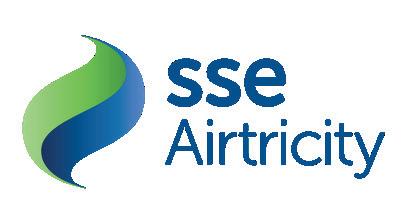
Ireland’s climate action targets are extremely ambitious because the Government is aiming to retrofit 500,000 homes
before 2030. Yet, this is also where a vast number of job opportunities lie. Many people in traditional trades — such as plumbers, electricians and heating engineers — have seen which way the wind is blowing and are jumping on board the sustainable energy train.

Training and upskilling open new career opportunities
By cross-skilling or upskilling, people will be able to carve out dynamic, new clean energy roles for themselves. The opportunities are so numerous that their careers can take off in surprising new directions. “We offer training and upskilling through our Energy Academy,” says Henry. “This offers colleagues the chance to become certified in a particular skillset or add to their skillset, so they can move within the organisation to another role. For instance, many colleagues in customer services have upskilled as project managers and are now working in energy services, advising customers on the best options for home retrofitting.”
Recognising employee needs and diversity
The energy industry is progressive by nature. It recognises that today’s employees are expecting hybrid working, enhanced family leave, initiatives and partnerships that support local communities, as well as a diverse and inclusive workplace. “Diversity and inclusion are critical for any organisation,” insists Henry. “Companies have to be able to reflect the diversity of their customers if they are to serve them in the best possible way.”
Henry has straightforward advice for anyone considering a career in energy. “Look at the purpose and the values of the organisation you’re interested in to see what it’s doing to deliver on its strategy,” she says. “That will help you decide if it’s right for you. But certainly, this is an industry that can offer the right people long, diverse and rewarding careers. It’s exciting to be part of it.”
The opportunities are so numerous that their careers can take off in surprising new directions.Paid for by SSE Airtricity WRITTEN BY Tony Greenway Image provided by SSE Airtricity
 Ruth D’Alton Group HR Director, Coillte
Ruth D’Alton Group HR Director, Coillte
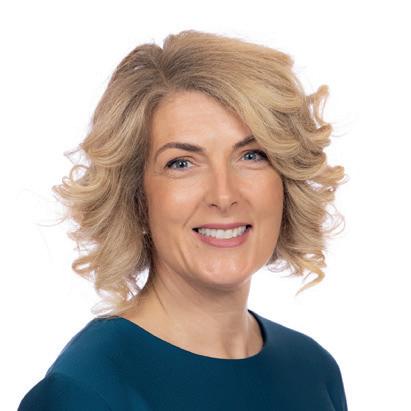
Identifying a career path is one of the most difficult decisions facing school leavers. Fortunately, there are many options available when choosing a career that can ultimately contribute to helping the planet. Forestry is one of them.
Positive impact of sustainable forestry Forestry involves planting, growing, protecting, managing, sustainably harvesting and replanting trees, leaving an enriched resource for the next generation. Forests help tackle climate change through, sinking and storing carbon; supplying sustainable wood products to help build homes; and enhancing biodiversity. Forests also provide recreational facilities, such as walking and mountain bike trails benefiting local communities and people’s wellbeing. If you are passionate about the natural environment and promoting sustainability, then forestry could be an ideal career.
The forest sector is forecast to significantly increase over the next decade. This will likely result in the creation of new jobs; the majority of which will be sustainable green jobs in rural communities.
The Government has identified the sector as key to delivering Ireland’s climate action goals and has backed this with Ireland’s Forest Strategy 2030 and the allocation of a new €1.3 billion Forestry Programme. The Programme aims to increase forest cover in Ireland from 11.6% to 18% and create 450,000 hectares of new forests.
Career opportunities in forestry Forestry is a sustainable and rewarding career; one that provides a great balance between the outdoors and an office environment.
Coillte, Ireland’s semi-state forestry company, is responsible for managing 440,000 hectares of primarily forested lands. It’s forestry strategic vision aims to bring more focus to climate action and sets ambitious new targets on biodiversity and recreation while continuing to deliver for the forest and wood products industry. It is Ireland’s largest forester and producer of certified wood and largest provider of outdoor recreation.
The company also develops green energy projects, produces panel boards and undertakes nature rehabilitation projects of scale. It is focused on balancing and delivering the multiple benefits from its forests and land for climate, nature, wood and people. While the forestry sector currently employs over 9,000 people, Coillte itself employs over 800 people directly and 1,200 contractors in locations across Ireland. Roles include professional foresters, ecologists, engineers and technology and environmental specialists, as well as finance, HR and communications. For people with an entrepreneurial interest, the industry is also seeing more forestry contracting business startups and a growing need for forest machine operators and timber hauliers.
Forestry also offers a great work-life balance and supportive environment that is conducive to career growth and gender diversity. In more recent
times, the semi-state forestry company has increasingly focused on growing the proportion of women joining its organisation. Today, its female representation is at 28% and, notably, at 44% on its board. However, there continues to be a general underrepresentation of women studying forestry and joining the sector.
Coillte is committed to ensuring there is an increased understanding of the importance of forestry and by doing so attract the next generation of talent to the sector.
Develop a career in forestry
As the forestry sector looks to expand, there are more career and learning options to consider. University College Dublin and South East Technological University offer undergraduate forestry degree programmes up to QQI Level 8. For wood science, timber skills and production management, Technological University Dublin
offers a QQI Level 8 Sustainable Timber Technology Course.
To earn and learn, Atlantic Technological University Sligo has introduced a haulage apprenticeship, and Teagasc Ballyhaise has launched a QQI Level 5 Forwarder Operator programme.
Coillte offers a graduate programme that allows forestry, ecology, and engineering graduates to transition from college into work.
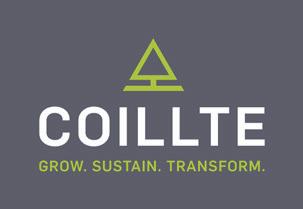
forestrysector
offers fantastic opportunities and a diverse range of career options that can make a real difference to our world.Paid
As the forestry sector looks to expand, there are more career and learning options to consider.Image provided by Coillte